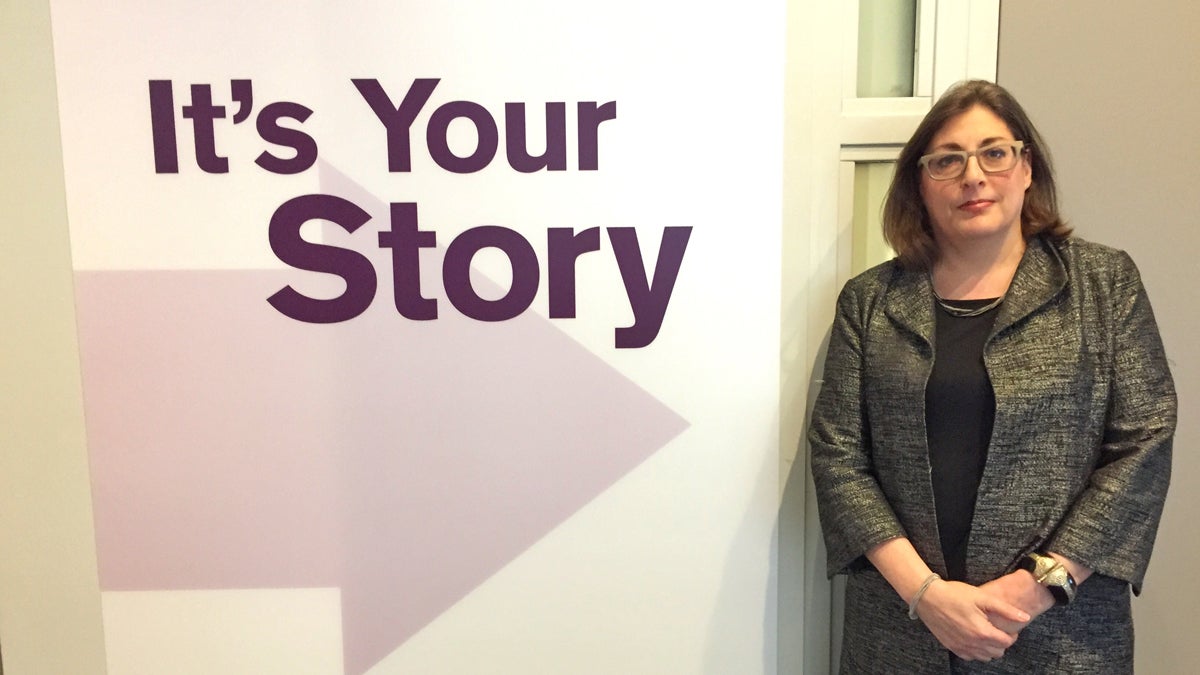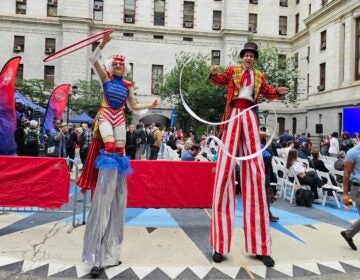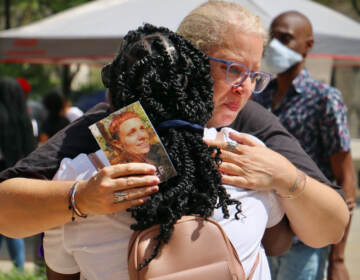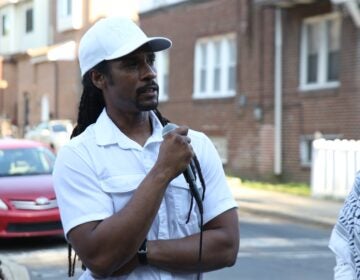Museum collects stories to show vandalized gravestones are more than just toppled rock

The National Museum of American Jewish History opened at 5th and Market streets in Center City in 2010. Ivy Barsky is the museum's CEO. (Dana DiFilippo/WHYY)
Kate Fischer Glass came to America with her mother in 1880 when she was just 18, fleeing a hard life in Hungary. She had five children with her husband — but lost one in infancy and raised the rest as a single mother after her young husband died too.
Bertha Grossman Reisman worked in her family’s business, the Kensington Carpet Company, in the early 1900s. She met her husband there, and the couple opened a millinery store, where Bertha became known for finding the perfect hat for every customer.
The women never knew each other — but their families became inextricably intertwined last weekend, when vandals toppled more than 150 headstones at the historic Mount Carmel Jewish Cemetery in Wissinoming, where both women are buried.
And now, both women are among the first whose stories are being collected by the National Museum of American Jewish History. The goal: To show that overturned grave markers are more than smashed granite and to humanize and honor the memories of those interred in the nearly 200-year-old cemetery.
“These were not victimless crimes,” museum CEO Ivy Barsky said. “There are people and families who care about those graves and those legacies, and we wanted to make them three-dimensional for the museum audience, for those families, and maybe even for the perpetrators of those crimes so they understand who suffers because of this.”
The museum is posting the stories online and welcomes submissions from loved ones of all those buried at Mount Carmel, regardless of whether their headstones were damaged, as well as families affected by the desecration that occurred last week at Chesed Shel Emeth Cemetery in St. Louis, Missouri. The project was created in the spirit of the museum’s existing “It’s Your Story” exhibit, in which visitors can document their life stories in recording booths.
At Mount Carmel, Glass’ gravestone was damaged, and Reisman’s was not. But Reisman’s great granddaughter Beth Kissileff wrote: “If any in that place have been harmed, all have been.”
Police have not determined who caused the damage, which a relative visiting Mount Carmel discovered Sunday morning. A $50,000 reward has been offered ($15,000 from Mayor Jim Kenney’s office; $12,000, city Councilman Allan Domb; $10,000, the Anti-Defamation League; $10,000, an anonymous donor; and $3,000, the Fraternal Order of Police-Lodge 5) for tips leading the arrest and conviction of those responsible. Tipsters can call Northeast Detectives at (215) 686-3153 or -3154.
Police have called the desecration “abominable” and “reprehensible” but haven’t classified it as a hate crime.
Trump even suggested Tuesday the vandalism and recent bomb threats to Jewish community centers were a ploy to make “others look bad.”
Still, plenty of others have blasted the cemetery vandalism as anti-Semitic. Volunteers of all faiths have flocked to the cemetery on the edge of the city to help restore it.
“It’s bringing out the absolute best in people,” Barsky said. “Our friends and strangers are responding in incredible ways.”
At the museum Tuesday, at least one out-of-town visitor hadn’t heard of the cemetery vandalism. Still, museum-goer June Park said he wasn’t surprised, given the uptick in anti-Semitic and xenophobic hate groups and incidents that accompanied President Trump’s campaign and inauguration.
“We have Voldemort in charge, at this point in our history,” said Park, 27, of Minnesota, referring to the villain in the Harry Potter series. “Insanities are happening everywhere.”
Katharine and Michael Bowlus, who stopped to tour the museum during a weekend trip from their home in Jacksonville, Florida, had heard news reports of Mount Carmel’s misfortune.
“It is always shocking to read that Americans — who espouse the love of freedom — express their hatred for people they don’t even know in such heartless and cruel ways,” said Michael Bowlus, 61. “Intolerance is becoming tolerable in our country, and that is the antithesis of the basis of our freedoms.”
WHYY is your source for fact-based, in-depth journalism and information. As a nonprofit organization, we rely on financial support from readers like you. Please give today.




